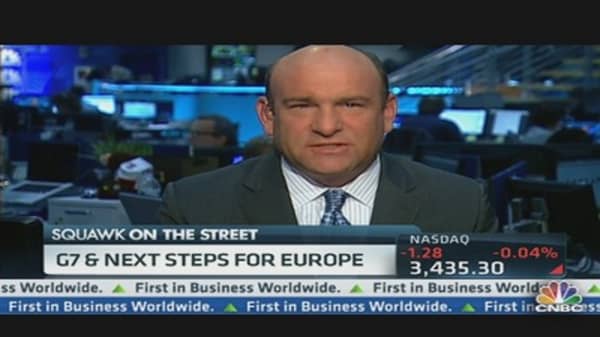New Treasury Secretary Jack Lew's policies towards the incredible shrinking yen look to be a calculated risk that assume first, the U.S. economy can withstand a stronger dollar and second, that America will be better off long-term if Japan gets healthy.
In an interview with CNBC last week, Lew flashed what can at best be described as a yellow signal of caution to Tokyo on its new easy money policies to pump up the Japanese economy. Those policies have led to an historic decline in the yen's value from 80 to over 101 to the dollar, making Japanese goods more competitive. Lew declined to criticize the policy and instead simply cited G7 agreements on currencies — read by some as a go-ahead, but also as an unambiguous warning that there are limits.
"The world community has made clear that domestic tools that are designed to deal with domestic growth are within the bounds of what the international community thinks is appropriate (and that) policies that are targeted to effect exchange rates are not,'' Lew said. "We've made it clear that we're going to keep an eye on them."
The question for markets is how long will this even-keeled attitude remain? Will Lew stay cool on the yen at 120 or even 130 to the dollar?
(Read more: Currency Devaluation—How to Get Away With It
Lew's approach faces several potential challenges. The first is that Tokyo's new policies do little to boost domestic Japanese demand and all the positive effects come from a boost to exports spurred by the sharp yen devaluation. If that happens, a big part of Japan's gain will end up being America's loss.
To address this issue, Treasury officials will carefully watch Japanese political pronouncements and economic outcomes. They will be looking for positive changes in domestic asset prices and increases in wages as a sign that a change in domestic demand is driving improvement in Japan's economy. Another key: they will want to hear Japanese politicians jawboning wages higher and using this opportunity to enact structural reforms to make the Japanese economy more competitive and open to domestic and foreign competition..
An important gauge for U.S. officials will be Japanese inflation expectations: if they really move higher and there are signs that Japan has broken the back of its two-decade long deflation, then the risk will be one worth taking.





